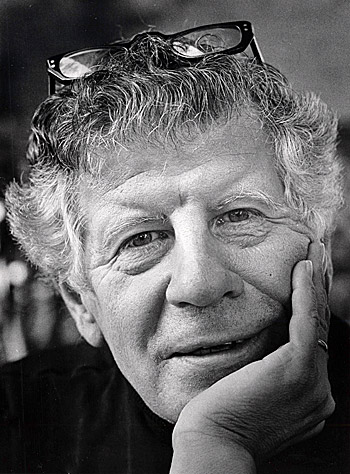For most of his life, the Reverend William Wendt was called "Father." The title went with his job as a priest of the Episcopal Church. His superiors let him know that what did not go with the job was challenging the Church's traditions.
It was 1975, and Wendt had been pastor of St. Stephen and the Incarnation Episcopal Church in Washington, D.C. for 15 years. The previous year, three bishops had defied Episcopal tradition and ordained 11 women—yes, women—to the priesthood. Wendt thought this was just fine, and so he invited one of those women, Reverend Allison Cheek, to celebrate the eucharist at St. Stephen.
The action resulted in an uproar—though ordained, the women had not been invited to conduct services at other Episcopal Churches. Wendt was brought up before a church tribunal amid much fanfare: spectators lining up for a seat at the trial; law students monitoring the proceedings; newspaper artists capturing the main players. One person observed, "What Father Wendt is doing will not only help women in the church but women everywhere." It helped at least one woman who was at the eucharist: "I have saved forever a piece of bread from that service."
After a three-day trial, the Ecclesiastical Court of the Diocese of Washington formally reprimanded him: He had disobeyed the "godly admonition of his bishop." An appeal didn't change the verdict. Two years later, however, the Episcopal Church decided to officially allow women into the priesthood. Reverend Cheek joined the staff at St. Stephen.
Wendt had become a priest after World War II. He had been a fighter pilot during the war and later affirmed that he sought the priesthood "so that I would never be involved in anything like that again." First in New York and then in Washington, D.C., Wendt immersed himself in social service activities:
He worked to keep New York boys out of gangs, starting a baseball team with them.
He was arrested for sitting in the "colored section" of a Trailways bus terminal in Jackson, Mississippi.
He marched with Martin Luther King, Jr., to Selma, Alabama.
He led prayers during events to promote peace in Vietnam and to honor slain Black Panthers.
He organized the first public reading of the names of the dead in the Vietnam War.
During all these efforts, something else caught Wendt's attention. He had been visiting a woman who was dying of cancer and felt unprepared to help her, to comfort her. He took some time off to study death and dying, and in 1976 founded the St. Francis Burial and Counseling Society. In the 1970s, it was rare to discuss death and dying, but by that time, being on the fringe of popular opinion was something that Wendt was used to. The Society "helps adults and children . . . rebuild a sense of safety and hope after experiencing a loss, life-threatening illness, violence, or other trauma. . . ."
William Wendt never thought his job as Father Wendt was to sit in a church and pray. His mission was to go out and help people—whether they were in the church or out.
Update:
In 2001, Father Wendt died in church while listening to a psalm with his granddaughter. He was 81. His work with the dying and the grieving goes on at http://www.wendtcenter.org

